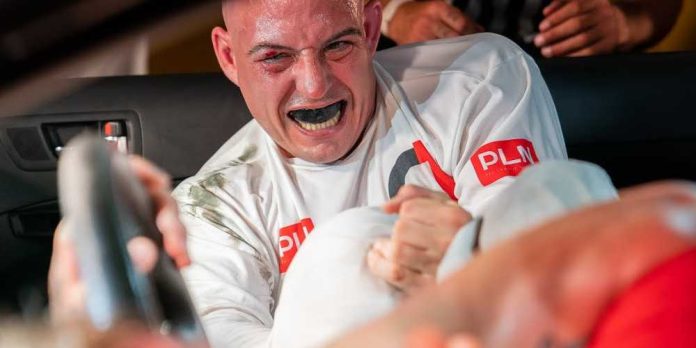With the NBA Finals underway, the dead season for sports betting in the US is in sight. We’ve accepted the summer doldrums as a natural part of the sports betting calendar, but Pro League Network co-founder Mike Salvaris argues that the industry does not have to accept the status quo. In addition to discussing it for SBC Americas, Salvaris will be speaking at SBC Summit North America next month on the next generation of marketing strategies.

It’s April, but winter is here for the sports wagering industry. Sure, the NBA Finals are gearing up and baseball is just starting, but the end of March Madness comes with the end of “Betting Season”; the dwindling of traffic and betting volumes until the action picks up again with the NFL in the fall.
You can see it in the numbers: In 2022, US sports betting handle fell from $7.4B in April 2022 to $4.5B in July, a drop of 39%. Mature sports wagering jurisdictions suffered similar fates: during the same time period New Jersey sports betting fell 41%, from $926M to $546M, Indiana was down 42% ($360M to $206M), and Colorado dropped 35% ($392 to $258M). Similar drops could be seen in 2021.
It’s not hard to see what the driver of this decline is: not enough compelling betting content. The US sports calendar is uniquely lopsided: three of the four major sports (as well as the two most popular college sports) have a season that overlap. When they finish, the dearth of content is trouble for sportsbooks looking to hold on to bettors until next season. This applies to the entire sports wagering ecosystem – looking at you, affiliates, content creators, and fantasy sites. Everyone needs something to talk about to fill the quiet times.
Silence costs money. Betting customers churned now means high re-acquisition costs in September. These costs are even more acute given that all operators are trying to do the exact same thing at the exact same time, kicking off the world’s least fun beauty contest, where operators hang pricey sign-up and re-deposit bonus baubles around their necks and hope that bettors fall in love.
Sportsbooks have been innovating on product to reduce churn costs, as a more compelling and unique offering keeps customers around. These innovations should be lauded. But product innovation is the wind beneath the wings of compelling betting content. You need something to put that SGP on.
How can we get more content? There are several solutions. Horse racing is one. Abundant and run in the USA during good time slots, there is much to like here. However racing’s legacy betting regime –parimutuel, high hold rates, aversion to +/- odds expression, and the fragmented nature of ownership (and marketing) of the sport – hold it back. Increased prevalence of fixed odds in racing will increase casual fan adoption, combined wallets for horse wagering and other sports, such as what FanDuel has launched, will also help. But the legislative, technical, and structural challenges with the sport mean that it cannot be a complete solution.
iGaming is another way operators are banking on keeping sports bettors engaged. Yet the slow rollout of across the country, coupled with a strong, but not complete overlap between an average iGaming player and the sports gambler mean that this is always going to be an imperfect fix.
Bringing new and novel sports into sportsbooks is another, often overlooked, way that the industry can continue to engage its audience. Content that appeals to casual fans, scheduled at times that fill gaps in the calendar to retain and attract customers. Casual bettors have a reason to stay engaged with books during times that other sports they bet on are taking a break. Underserved sports get a spotlight shined on them and a chance to create some new fans. Athletes are given an elevated platform to display their skills. Everyone wins.
Integrity must be central to any sport with wagering offered. If the sport cannot provide confidence to regulators and the betting public that it’s legitimate, then it doesn’t deserve our industry’s time. Strict anti-wagering policies with swift punishments must be a given for any league hoping to get a dollar of handle. Most state regulators have built a strong regime for approving sports – paying close attention to the sport’s governance, rules, internal policies, and athletes before allowing the sport the privilege of taking a bet within the state. More resources given to commissions to help the approval process would be welcome.
So, bring on more sports into those wagering catalogs. Our job as an industry is not to judge whether these are worthy of our time and attention – the public will take care of that– but to make sure that every wagerable competition is fair, the markets are priced sensibly, and bettors are encouraged to gamble responsibly.
Let’s look forward to the World Surf League, Slamball, and our own sports such as the World Putting League, NXL Pro Paintball, and CarJitsu. Some of these sports might raise a smile, but they offer a serious way for an industry to engage consumers during these lean times.
Sports may be seasonal. But wagering dollars are not seasonal. It’s time to get out of our wintery daze.














